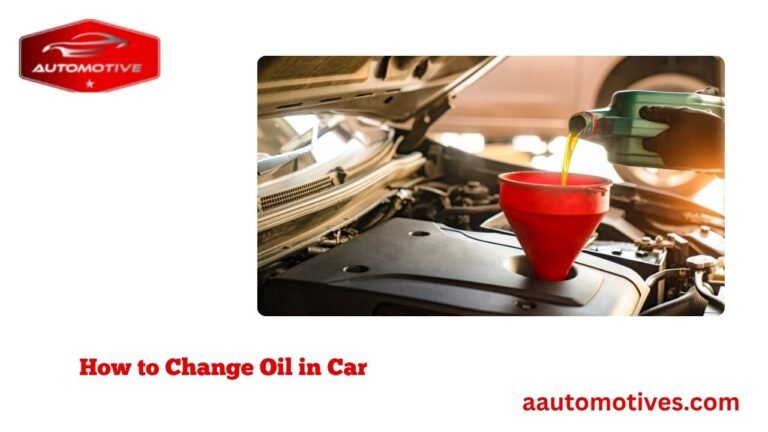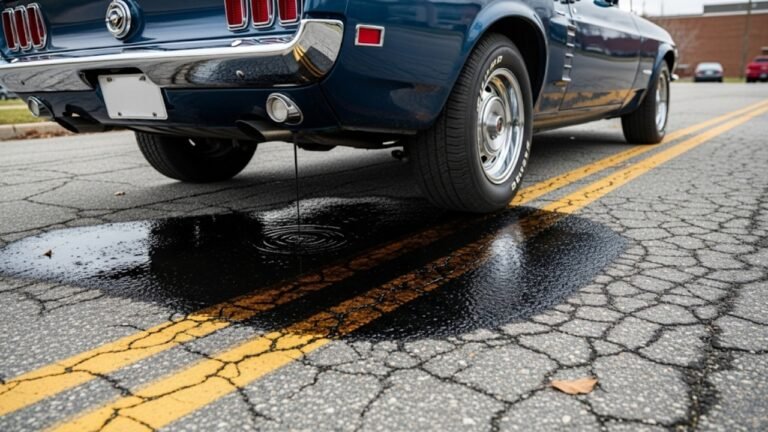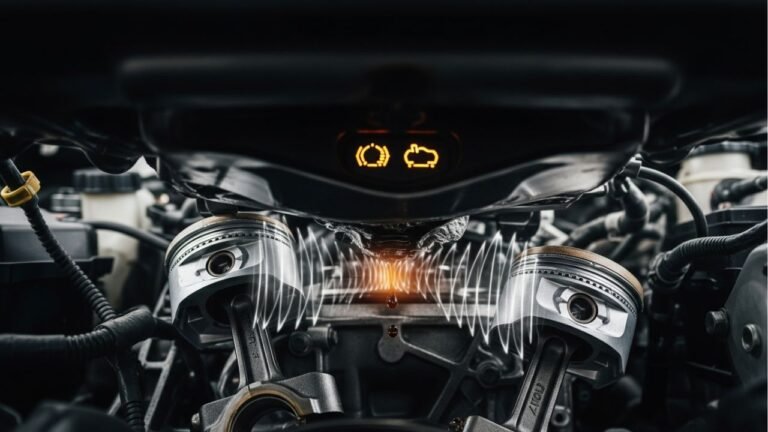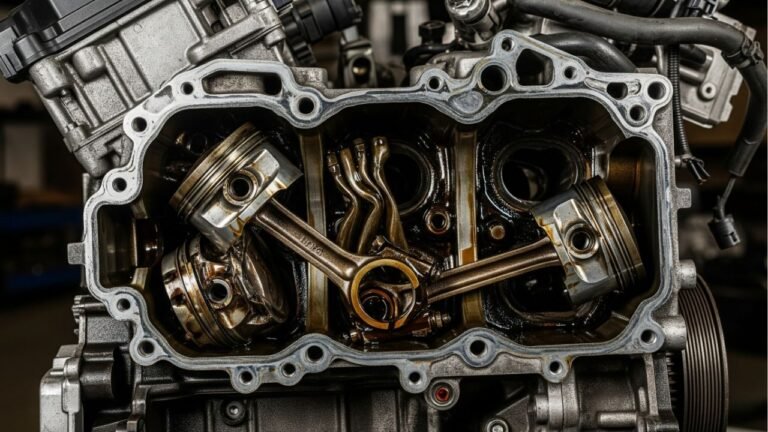What Happens If You Put Diesel Oil in a Petrol Car?

A few years ago, my cousin called me, almost in tears. He was standing in the middle of a dusty roadside in Sylhet, next to his car, panicking. His words were quick and shaky: “I think I put diesel oil in my petrol car. What do I do now?”
In that moment, I realized this isn’t just a technical error—it’s an emotional experience. Cars are part of our lives. They’re not just metal machines. They’re memory-makers, work partners, and in Bangladesh—where road trips to places like Cox’s Bazar or Bandarban are soul food—they’re emotional attachments. So when something goes wrong, especially something as avoidable as the wrong oil, it cuts deeper.
Let me take you through what happens if you put diesel oil in a petrol car, and why it’s more than just a “small mix-up.” I’ll break it down like a friend would, with honest advice, real examples, and a little empathy along the way.
First—What Even Is Diesel Oil vs Petrol Engine Oil?
Before we panic, we need to understand what these oils are. While both are lubricants, their chemistry is different.
| Feature | Diesel Engine Oil | Petrol Engine Oil |
|---|---|---|
| Additive Load | Higher (more detergents, dispersants) | Lower (less aggressive detergents) |
| Viscosity | Generally thicker | Usually lighter/thinner |
| Ash Content | Higher (due to heavy-duty use) | Lower (to avoid spark plug fouling) |
| Target Engine Type | Compression ignition engines | Spark ignition engines |
In short, diesel oil is built tougher because diesel engines burn fuel differently. They run hotter, carry more soot, and need more aggressive detergents.
But that doesn’t mean your petrol car can handle that toughness.
So, What Happens If You Put Diesel Oil in a Petrol Car?
Let’s talk about what actually goes down under the hood when this oil mismatch happens. Spoiler: It’s not pretty.
1. Spark Plug Fouling
The first victim? Your spark plugs. They’re like the heartbeats of a petrol engine. They ignite the air-fuel mixture.
Now imagine coating them with a layer of sticky, heavy oil that wasn’t designed to burn cleanly. That’s what diesel oil does. It creates ash. It builds deposits. Your spark plugs go from crisp to crusty real quick.
Result? Misfires. Hard starts. And eventually—no start at all.
2. Engine Sludge and Carbon Deposits
You might think, “Oil is oil, right?” Not really. Diesel oil has more detergents, which sounds good—until those detergents start breaking down parts of your engine that weren’t meant for them.
These harsh additives mix with heat and combustion, turning into sludge or carbon gunk in your engine. Your valves get sticky. Your piston rings wear faster. You may not notice it right away, but the damage builds slowly, like rust on an old gate.
3. Catalytic Converter May Get Damaged
Your catalytic converter is the peacekeeper of your exhaust system. It cleans up emissions. But it doesn’t do well with high ash content.
When diesel oil burns in a petrol car, it produces ash and soot. These clog up your catalytic converter. It’s like making someone run a marathon with a blocked nose.
Over time, you’ll smell something weird. You’ll see your fuel efficiency drop. And worst-case? That converter could fail—an expensive fix.
Real-Life Consequences: A Short Story from Dhaka
One night, a friend of mine—let’s call him Arif—was coming back from Uttara. He had accidentally poured diesel engine oil during his last service at a local garage. It seemed fine at first. Then one morning, the car started coughing like it caught a cold.
He ignored it. Weeks later, the engine locked up in the middle of Dhanmondi Road No. 27. The mechanic’s verdict? Sludge buildup. Spark plugs fried. Cat converter melted. All traced back to the wrong oil.
That mistake cost him ৳48,000. And three weeks without his car.
Signs You’ve Used the Wrong Oil
If you’re unsure whether you’ve made the mistake, watch out for these:
-
Engine misfires or rough idling
-
Poor acceleration and hesitation
-
Check engine light comes on
-
Strong exhaust smell
-
White smoke or unburnt fuel smell
-
Sluggish performance in traffic
Don’t wait till it’s too late. Trust your gut. If your car feels “off,” check the oil receipt.
Why Some People Still Do It: Misconceptions
You’d be surprised how common this mistake is. Why? Because of some common myths.
-
“Diesel oil is stronger, so it must be better.”
Wrong. It’s stronger for diesel engines, not petrol ones. -
“They both lubricate—how bad can it be?”
That’s like putting shampoo in a dishwasher. Same goal, wrong formula. -
“I used it once and nothing happened.”
Even a cigarette doesn’t kill you instantly. But it adds up.
What To Do If You’ve Already Used Diesel Oil
Okay, deep breath. If you’ve realized your mistake, don’t drive around like nothing happened. Here’s what you should do—immediately:
Step-by-Step Emergency Action:
-
Stop driving as soon as it’s safe.
-
Drain the oil—completely.
-
Replace oil filter to avoid old oil mixing in.
-
Flush engine with a safe engine flush product.
-
Refill with correct petrol engine oil (check your manual).
-
Run engine for 10–15 minutes to let new oil circulate.
-
Check performance and consult a trusted mechanic.
If the car already ran for hundreds of kilometers, get a compression test or diagnostic scan. You may need to inspect the catalytic converter and spark plugs.
Can Mechanics Make This Mistake?
Sadly, yes. Especially in local or rushed garages. If you don’t specify, they may assume based on their default stock. That’s why it’s crucial to:
-
Watch them pour the oil
-
Ask for the product name
-
Double-check your receipt or oil bottle
-
Stick to branded service centers when possible
It’s your engine. Take charge of it.
Long-Term Damage: What If You Keep Using Diesel Oil in a Petrol Car?
At first, you might not notice much. That’s the trap. The car starts, it runs, and you feel relieved. But inside the engine, a silent war begins.
Think of it like feeding your pet the wrong food. They might eat it, sure—but over time, their health suffers. Same with your car.
What’s at risk over months or years?
-
Premature Engine Wear: Diesel oil is heavier. It doesn’t flow as easily in petrol engines, especially at cold starts. This lack of lubrication causes friction—and friction eats metal.
-
Clogged Oil Passages: Diesel oil creates more soot and debris. Over time, it clogs narrow oil passages in petrol engines. That’s like a blocked artery in your heart.
-
Low Fuel Economy: Thicker oil increases resistance. Your engine works harder to pump it. And that burns more fuel. You’ll feel the difference at the pump.
-
Catalytic Converter Failure: Ash from diesel oil builds up. It ruins the converter’s ability to clean emissions. Replacing it could cost more than ৳80,000 in some cases.
-
Warranty Voids: If your car is under warranty and you use the wrong oil? Say goodbye to free repairs. Manufacturers clearly state what oils are allowed.
This isn’t about scaring you. It’s about saving you from regrets.
Manufacturer Recommendations: Why They Matter More Than You Think
We tend to ignore manuals. It’s a common habit. But in this case, your car’s manual is like a doctor’s prescription.
Each car brand tests specific oils for:
-
Viscosity
-
Additive content
-
Operating temperature range
-
Engine design compatibility
For instance:
| Car Brand | Petrol Engine Oil Spec | Diesel Oil Compatibility? |
|---|---|---|
| Toyota | API SN or SP, 0W-20 or 5W-30 | Not Recommended |
| Honda | ILSAC GF-6, 5W-30 | Avoid Diesel Oils |
| Ford | WSS-M2C930-A | May Damage Catalytic Converter |
If the spec says ILSAC GF-6, it’s designed for spark-ignition (petrol) engines. Diesel oils often don’t meet these specs and could trigger engine failure or warranty rejection.
So next time, just open the glovebox and read the label.
Is Synthetic Diesel Oil Any Better?
Here’s a tricky one.
Some folks think, “Hey, what if I use synthetic diesel oil in a petrol car? Synthetic is superior, right?”
Yes, synthetic oils are more stable and clean. But synthetic diesel oil still has those high detergents and additives designed for diesel combustion. That can still harm spark plugs, oxygen sensors, and your catalytic converter.
So even though it’s synthetic, it doesn’t change the core issue. Use only oils marked safe for petrol engines. Many synthetics are dual-rated (e.g., “API SN/CF”), which are safer—but check the fine print.
How to Avoid This Mistake Ever Again
Mistakes happen. But we can prevent them. Let’s look at a few foolproof strategies.
Prevention Tips:
-
Know your oil code: Memorize your required oil spec (e.g., 5W-30 API SN).
-
Write it down: Keep a sticky note on your dashboard or inside the glovebox.
-
Ask to see the oil: Don’t be shy. Ask the mechanic to show you the oil bottle.
-
Go to trusted garages: Prefer authorized centers or places with good Google reviews.
-
Do it yourself: If you’re hands-on, changing oil yourself with the right spec can save money and ensure safety.
Simple, but powerful.
Frequently Asked Questions (FAQs)
Let’s clear up the doubts that pop up often. Here are 8 common questions related to this topic:
1. Can I use diesel oil in a petrol car just once?
You can, but you shouldn’t. One-time use may not cause immediate failure, but it starts the wear process.
2. Will my engine die instantly?
No. Most petrol engines will still run with diesel oil—for a while. But damage happens silently, over time.
3. Is there any diesel oil that works safely in petrol engines?
Some oils are dual-rated (e.g., “API SN/CF”). These are often safe—but not always ideal. Always follow your car’s manual.
4. What if I accidentally mix a small amount?
If you added a small amount (less than 10–15%) and caught it early, drain and replace it. Chances of serious damage are low if handled immediately.
5. Is it worse than using the wrong viscosity oil?
Yes. Wrong viscosity may slightly affect performance. Diesel oil in petrol engines, however, brings wrong additives, ash content, and more.
6. Can diesel oil cause white smoke?
Yes. Because it may not burn cleanly in a petrol engine, leading to white or blue smoke due to unburnt residues.
7. Can it damage spark plugs permanently?
Yes. The ash-forming detergents foul the spark plugs. They may need replacement if exposed for long.
8. How long can I drive before it causes major damage?
There’s no exact number. Some people drive weeks with mild issues. But the longer you drive, the worse the internal damage gets.
Closing Thoughts: Learn From Mistakes, But Don’t Repeat Them
If you’ve put diesel oil in a petrol car, don’t beat yourself up. It happens. We all make mistakes. What matters is how quickly you act and what you learn from it.
I’ve seen too many friends pay the price—not just in money, but in stress, lost time, and car downtime. It’s frustrating when something preventable ruins your rhythm.
Let’s be honest—your car deserves the same care you give your phone or favorite kurta. Just like we don’t plug a 220V charger into a 110V outlet, we shouldn’t use the wrong oil, either.
So next time you’re at a garage, say it with confidence:
“My car needs petrol engine oil—nothing else.”
Because now, you know better.






